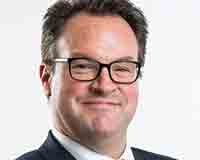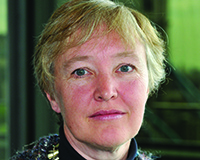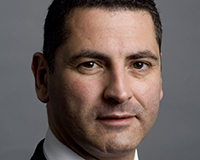 Our forum panel offer their views on how London and its property markets will fare in 2016. The consensus is broadly positive, though the possibility of Brexit, the mayoral election and the capital’s ongoing housing crisis are potential causes for concern.
Our forum panel offer their views on how London and its property markets will fare in 2016. The consensus is broadly positive, though the possibility of Brexit, the mayoral election and the capital’s ongoing housing crisis are potential causes for concern.
 Scott Corfe, associate director, CEBR
Scott Corfe, associate director, CEBR
“We expect the London economy to fare strongly over the next year (2.7% compared with 2% for the UK as a whole), with the capital benefiting from an influx of talent both from the rest of the UK and overseas. Entrepreneurs in growth sectors such as digital and creative continue to base themselves here, driving a new economy in the capital that is less reliant on financial services.
Some cracks are starting to show, however, and policymakers must not be complacent. In particular, the referendum on Britain’s future membership of the EU leaves London, and the UK more broadly, in an uncertain place in which to undertake new business ventures.”
 Simon Cookson, real estate partner, DLA Piper
Simon Cookson, real estate partner, DLA Piper
“The coming year will bring many hours of discussion and commentary as London’s property market tussles with the issues raised by the forthcoming in/out EU referendum. It is in everybody’s interest that confidence in London as an investment destination and a place to do business and live remains high through this period, so we should embrace the debate as a chance to have our say. Our city will be changed as a result, but strengthened whatever the outcome.
In 2016 the London market is also likely to see the first real moves to institutionalise residential investment and more PRS transactions being consummated and financed. Here, of course, affordability in London is key and is a difficult equation without some form of government support.
Separately, data storage and processing in and close to London is paramount. Perhaps a start will be made to solve some of the issues inherent in the operation and ownership of these specialist buildings.”
 Nick Belsten, central London director, Indigo Planning
Nick Belsten, central London director, Indigo Planning
“Planning is likely to be more challenging next year. At one level there is the increasing uncertainty of the big economic picture. The squeeze on commercial space and rising housing costs could start to make London less attractive for business and begin to take the shine off its world city status. The outcome of the mayoral race and how London and national decision-making will integrate – or not – depending on who wins, along with the progress of the housing and planning bill through the House and delays on big infrastructure, could also make the market more circumspect.
At the same time, resourcing local authority planning teams remains a barrier to delivery. Realistically, this is going to get worse before it improves, as planning authorities come to terms with the proposed introduction of further reforms. Office-to-residential permitted development rights being made permanent is less problematic, however. Measures to assist exemptions for central London and other economically important areas are either already in place or being explored and, further out, the impact of these changes is being carefully managed.”
 Bill Page, head of business space research, Legal & General Property
Bill Page, head of business space research, Legal & General Property
“The 2016 market will be influenced by market-specific factors, but politics will also be an influence. London’s position as a leading global financial centre will be scrutinised as the date of the EU referendum is confirmed. Governance and transport infrastructure will also play a part. A new mayor will be in place, potentially bringing a different perspective on property, inward investment and infrastructure. London’s position in a nation of devolved administrations will also be clearer. This has the potential to influence stock creation and long-term funding requirements.”
 Ker Gilchrist, head of London investment, Quintain
Ker Gilchrist, head of London investment, Quintain
“Developers will continue to listen to their key customer: the occupier. While we remain positive about short-to-medium-term growth prospects, any developers who assume they can meet their returns through continued exponential rental growth assumptions will most likely feel the pain. Occupiers’ tolerance towards spiralling total occupancy costs will reach its limit.”
 Jo Valentine, chief executive, London First
Jo Valentine, chief executive, London First
“Three vital factors for 2016 are the housing crisis, airport capacity and our membership of the EU. Housing costs are so high that we risk a hollowing out of the capital. That’s why we’ve launched a campaign, Fifty Thousand Homes, to push for a doubling of housebuilding to 50,000 homes a year.
Secondly, airport expansion in the South East is expected to be put before a Parliamentary vote in 2016. Expansion won’t just help businesses in and around London, but will help hook up the rest of the country to new markets.
Thirdly, the EU referendum could land in 2016. London is the financial capital of Europe, and its location in the single market aids its flourishing services exports. This will only increase with the proposed digital single market, which will tear down regulatory walls between 28 member states and thereby boost London’s fast-growing tech sector.”
 Simon Durkin, head of research, BNP Paribas Real Estate
Simon Durkin, head of research, BNP Paribas Real Estate
“Among the most important factors could be the timing and trajectory of interest rate rises in the UK and monetary policy in the US. UK rates are likely to move out from Q1 next year, albeit slowly and steadily and so avoiding significant effects on market sentiment. Overseas investors are expected to continue to contribute to liquidity, attracted by long-term capital preservation and good risk-adjusted performance. London’s strong economy, low unemployment and rental growth, as well as the current bond rate spread, are likely to protect capital values from rising rates during the next 18 months.
London is a global market, and the potential impact of events in Asia are also relevant to the consideration of both upside and downside risk. At a more local level, May’s mayoral election will influence the prospects for additional airport capacity, and housing and planning policies. If the squeeze on office space continues we believe 2016 will see greater activity in new and rejuvenated non-core submarkets such as Aldgate, Whitechapel, Croydon, King’s Cross, parts of Docklands, Shepherd’s Bush and Paddington.”











